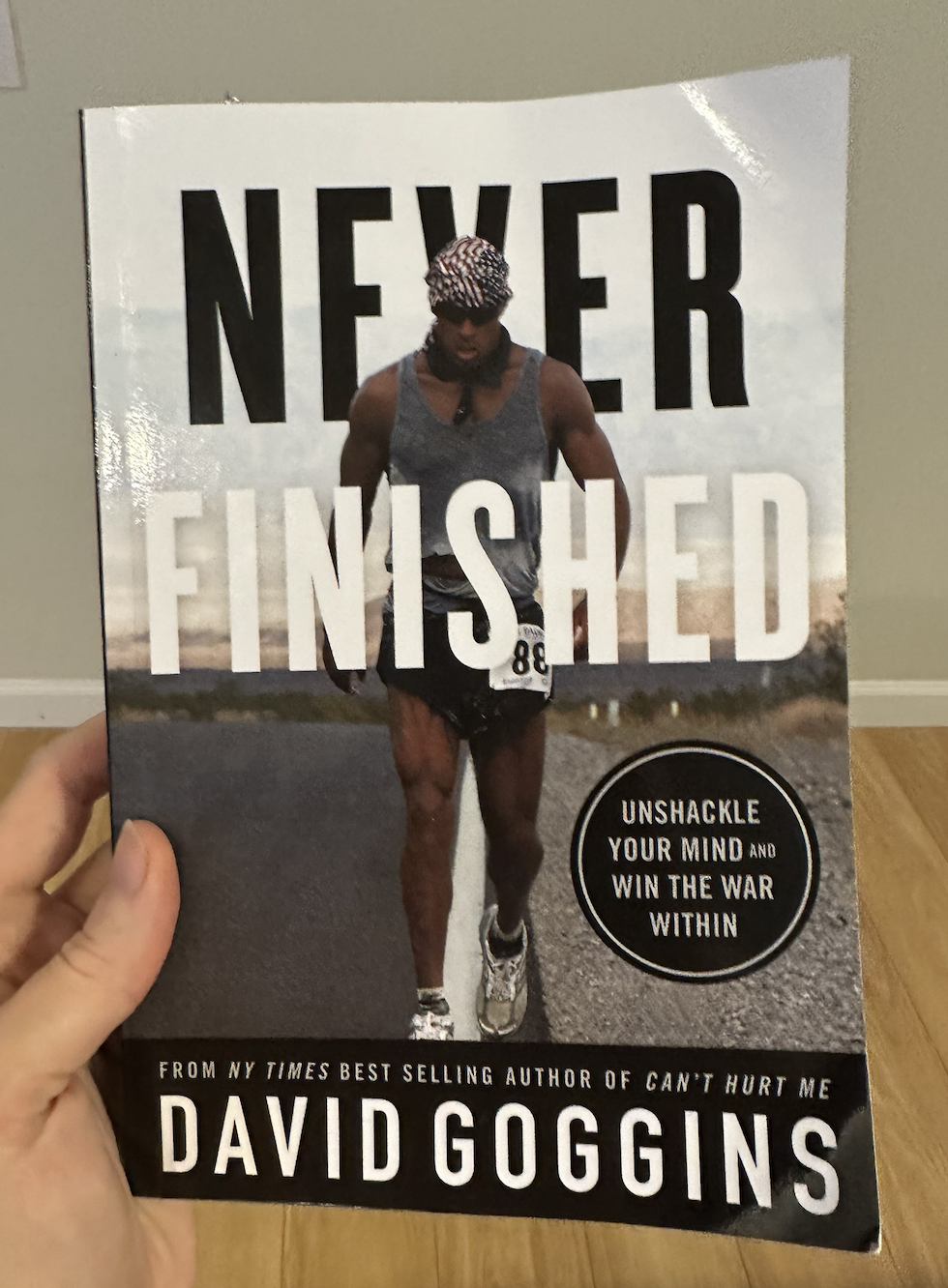What I like most about David Goggins is that he keeps challenging the parts of himself that he doesn’t like. In both his first book and Never Finished, he often splits himself into two personas: David, and Goggins, where David is a person to transcend, and Goggins is his transcended ultimate self, his truest, best self.
I think that this approach is good, first of all, because it’s on Goggins’ own terms. Nobody else is pushing him to be the way he is except for him. The split persona approach might work for many people, because it allows all of us to confront the parts of ourselves that we dislike as if they are people who are separate from us. It’s a compartmentalization of the old and new, and parts of ourselves that work well for us vs. parts that do not.
I read Can’t Hurt Me a few years ago. I tend to read many nonfiction books at once, and Can’t Hurt Me felt like someone was finally being real with me and telling me the truth while others were serving up platitudes and embellishments. Maybe ‘truth’ isn’t the right word for it, and neither is ‘accountability’. What DG does in his first book is radical self-confrontation. He hones in on himself and his goals and ends up being a Navy Seal. He continues this in Never Finished in the form of ‘evolutions’ as chapters. Each chapter is biographical and also interspersed with applications. It usually takes the form of a few pages of biography, and a few paragraphs of applications. I personally found this cadence to be useful and worth imitating. The format of a personal anecdote followed with advice or broader application is something I resonate with.
What I like a lot about Never Finished is DG provides a few highlight tools to perform radical self-confrontation. In the first couple chapters, he recommends recording your own voice and also listening to your haters, or reading every comment. I think this is wonderful, because I’ve never heard more discomfort than from people who record their own voice, and also the popular adage is to never read the comments.
Several years ago I was one of those people too who hated the sound of my own voice, and I ended up getting rid of this by listening to myself over and over. And frankly I’m going to read the comments anyways, and DG had some good advice in his book on what to do with those. It’s not what you might expect so I won’t spoil it.
The title of Never Finished is perfect, as Goggins does believe that when most of us say we are doing 100 percent in life and physical feats, we are actually doing about 40 percent. If phoning it in is the most horrible feeling in the world, leaving it all on the field is the best feeling in the world.
The idea of self-leadership that Goggins discusses in this book is another good idea. It was my favorite concept in the whole book. Again I won’t spoil it or summarize, all I will say is this concept, for me, is one of the most important concepts to review and re-read.
Ultimately, I loved this book and I found so much wisdom in it that I plan on re-reading it often. I can’t think of two people on the planet who are more different than me and David Goggins, yet I find his work highly relatable. The one thing we do have in common is Leadville - I grew up there, and Goggins has run the LT 100 at least twice. I’ve never done the hundred, yet, maybe this is the most exciting aspect of Ultrarunning. It’s an equalizer, where people of different backgrounds, ages, and races all run the same trail but each experience is wildly different. DG’s voice is like this - it’s a challenger and an equalizer. It seeks to bring us all up to the same level. I don’t think a book can have a better mission than that.
